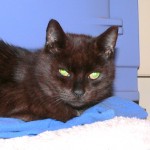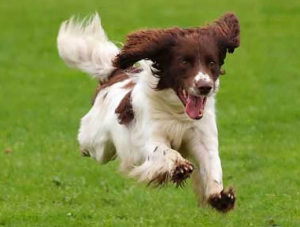News
Archive for August, 2012
Diabetes Awareness Month
by on August 9th, 2012
Category: Special Offers, Tags:
Pet of the month – August
by on August 9th, 2012
Category: Pet of the Month, Tags:
 It seems only appropriate that Fatty should be Pet of the Month for our Diabetes Awareness Month.
It seems only appropriate that Fatty should be Pet of the Month for our Diabetes Awareness Month.
Appropriately named for his voracious appetite for food, mice and birds, it is likely that Fatty’s early years of over-eating, not helped by him eating his sister’s food as well as his own, will have predisposed him to develop Diabetes.
He has had various difficult periods in the management of his diabetes resulting in hypoglycaemic episodes, not least when he developed hyperthyroidism two years ago as well, but having had the condition for over 4 years he is testament to how well diabetes can be managed these days with the latest forms of insulin and most appropriate monitoring regimes and diet foods.
Summertime – the Heat is On
by on August 9th, 2012
Category: News, Tags:
The  onset of summer weather brings with it the prospect of warm lazy days and longer evenings, but it’s worth sparing a thought for our pets. There are a number of potential hazards associated with the season that should be borne in mind – so here are a few tips:
onset of summer weather brings with it the prospect of warm lazy days and longer evenings, but it’s worth sparing a thought for our pets. There are a number of potential hazards associated with the season that should be borne in mind – so here are a few tips:
Heat can be a real killer for many pets. It’s a good idea to avoid exercising pets in the heat of the day – particularly old overweight dogs with heart problems. Stick to the early mornings and evenings. You may also want to consider trimming dogs’ coats since all pets need to keep cool in the summer. Heat can also be a problem for guinea pigs and rabbits. Every summer guinea pigs and rabbits die of heatstroke. Always provide plenty of water and position any runs (and hutches) in the shade.
Flies also pose a huge problem for rabbits in the warmer months. Rabbit rear ends often become damp and this moist area attracts flies, which lay their eggs there. These in turn hatch out into maggots, which burrow through the rabbit’s skin and into the underlying flesh. During the summer months, rabbit rear ends should be inspected on a daily basis for fly eggs and maggots.
Grass seeds are another summer problem – the grass awns of the meadow grasses are easily trapped in the coats of pets – especially dogs. They then migrate and become lodged in a variety of places including the ears and between the toes. It is always a good idea to groom your pets regularly, and especially after walks, to keep a close eye out for grass seeds.
The sun itself can also pose a hazard. Pets, especially cats, with white ear tips and noses are particularly at risk from sunburn, which in turn can lead to cancerous changes
in the sunburnt areas. High factor sunblock applied to the at-risk (white) areas helps to minimise this risk. If your pet is showing signs of skin changes, please call us at once.


